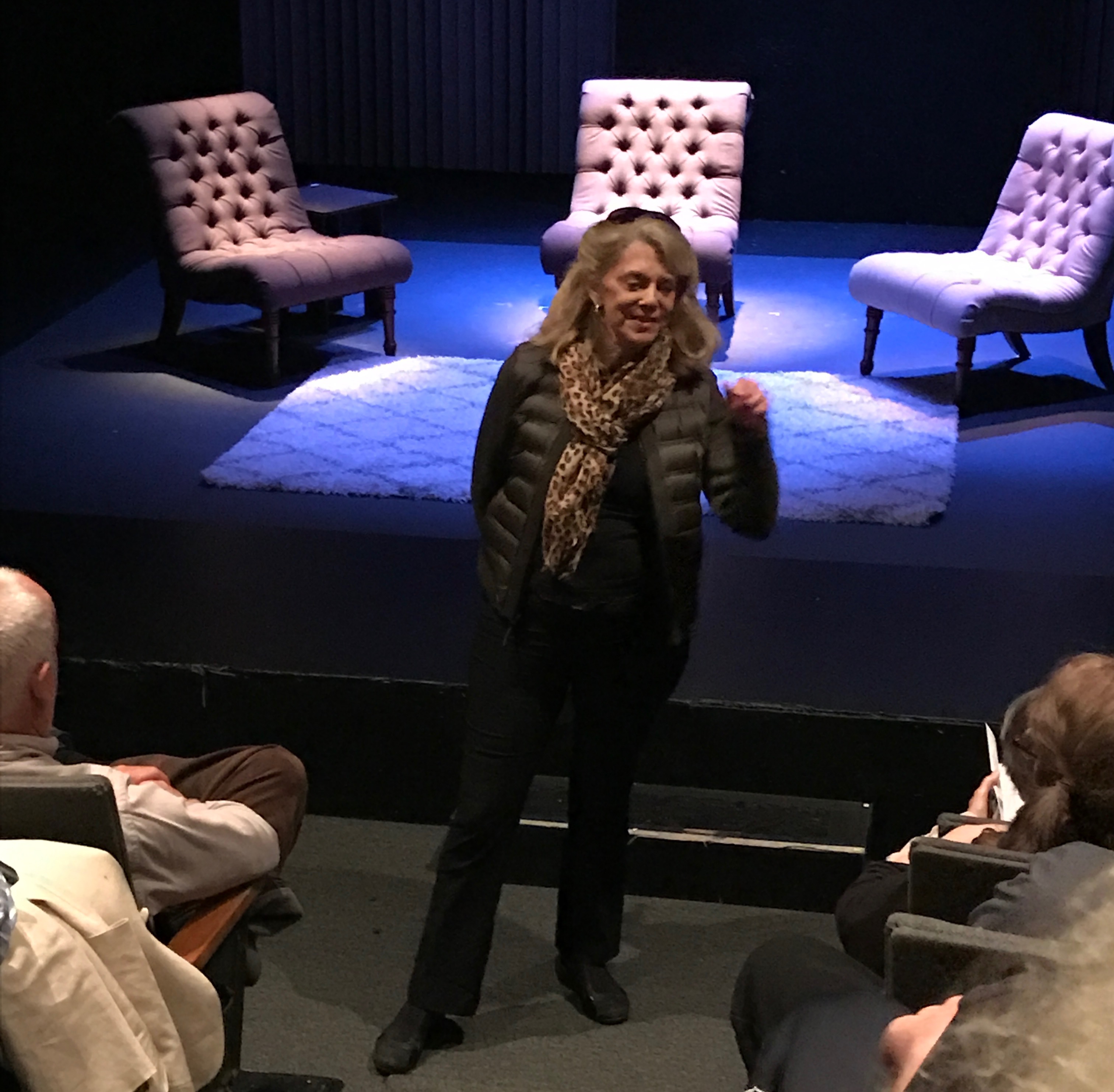
04 Oct TIO NYC: “Communion” at Urban Stages
Dan MacIvor’s “Communion” is now up at Urban Stages, 259 West 30 Street, through October 30. Tickets available here.

Writer-Director Daniel MacIvor
Blame it on a Blythe spirit.
Actress Blythe Danner had seen and admired Daniel MacIvor’s ‘Marion Bridge” and asked if he might be interested in writing a play with a role for her. The resulting “The Communion of Saints” was about a tumultuous mother-daughter relationship, with over-the-shoulder references to MacIvor’s own experiences in a therapist’s office. Danner felt the part of the therapist’s gay partner was not right, so the playwright had a story, but no production. In the final version, that fourth role got dropped; the geometry of “Communion,” a triangle, came to represent the mind, body, and spirit of its three flawed characters at a crossroad in their challenged, entwined lives – and also the structure of the work.
“Communion” is now up at Frances Hill Barlow’s Urban Stages, where it was directed by MacIvor and stars a shrink, a reformed alcoholic, and a fervent evangelical in a production that explores themes of unaffiliated spirituality versus religiosity, mothering, and therapy.

Frances
In a highly nuanced, utterly believable, nostalgic (for some), performance, Erica Bradshaw is Carolyn, the shrink who, out of the gate, appears stereotypically Freudian, i.e. non-communicative, passive. But this Sphinx has cracks that open up to reveal a bleeding heart.
We first met Stephanie Cozart in the mid-1990s Telluride, enthralled by her portrayal of a talking dog in an adaptation of A.R. Gurney’s play “Sylvia.” Ironically shades of that manic, comic, edgy persona abide in her Leda, a middle-aged woman and mother forced to come to terms with the consequences of substance abuse – and her own mortality. But MacIvor has Cozart pressing the pause button from time to time, also pulling way back on that DNA to comfortably fit her performance onto a tiny stage and the claustrophobic setting of the therapist’s office where we first meet Leda in a session with Carolyn.

Leda & Carolyn
That opening scene, with its slow-to-no dialogue and Leda twitching and squirming in evident frustration, is a cleverly orchestrated cliché that set the audience on edge and results in a dramatic tension and angsty vibe that permeates the play like a dank breeze.
She aches like a woman; breaks like a little girl. As Ann, Leda’s long-suffering, reactive daughter, Jackie Hansen’s performance flashes a rainbow of colors from evangelical tigress to disillusioned, stoical young lady on the verge. Ann defies communion until the (not so) bitter end.
In an interview, MacIvor explained that he gives it all away in his titles.
“Communion ” he said, “ is what we all seek – but we want it on our own terms. We can have communion, but it is a simpler thing than we imagine. Life isn’t short; it’s little.”
Despite its battle-scarred contours – MacIvor is known for his insights about our broken parts – “Communion” is quietly optimistic. There is a light at the end of the tunnel – or rather behind the door (a persistent metaphor). What emerged from the soil of psychological disfunction blossoms into something sublime, a state MacIvor defines as “terrifyingly beautiful and terrifyingly delightful.”
“Communion” writ small is about sharing. Upper case it is all about religious zest. In any case, the play should come with a warning label: anyone venturing into the interior of the psyche, had better go armed – with a sense of humor, mostly about ourselves.
“It is not about learning what we don’t know; it is about understanding what we already know,” explained MacIvor.
“Communion” is definitely not Neil Simon. But it does glow in the dark (theatre).


Sorry, the comment form is closed at this time.